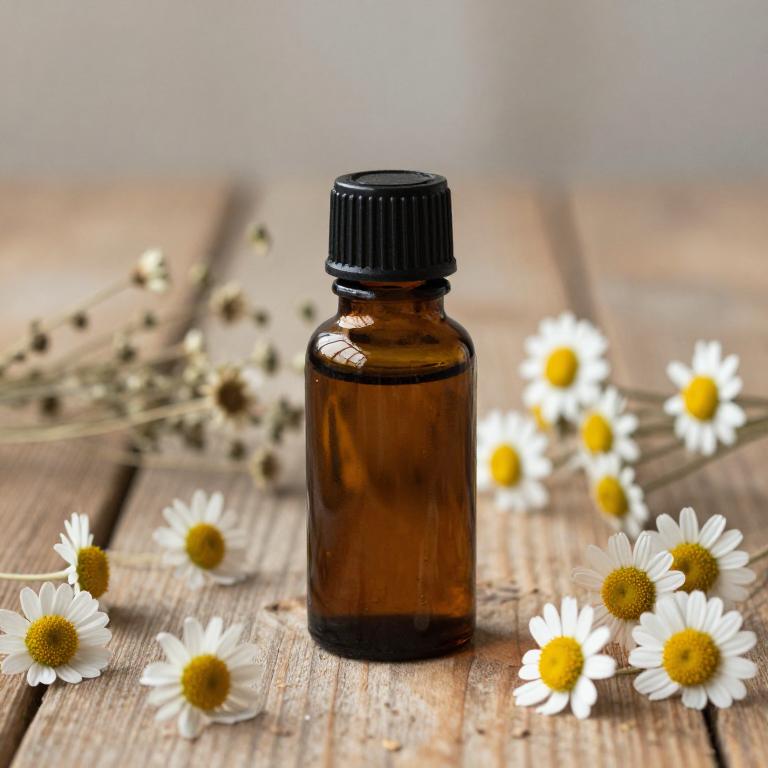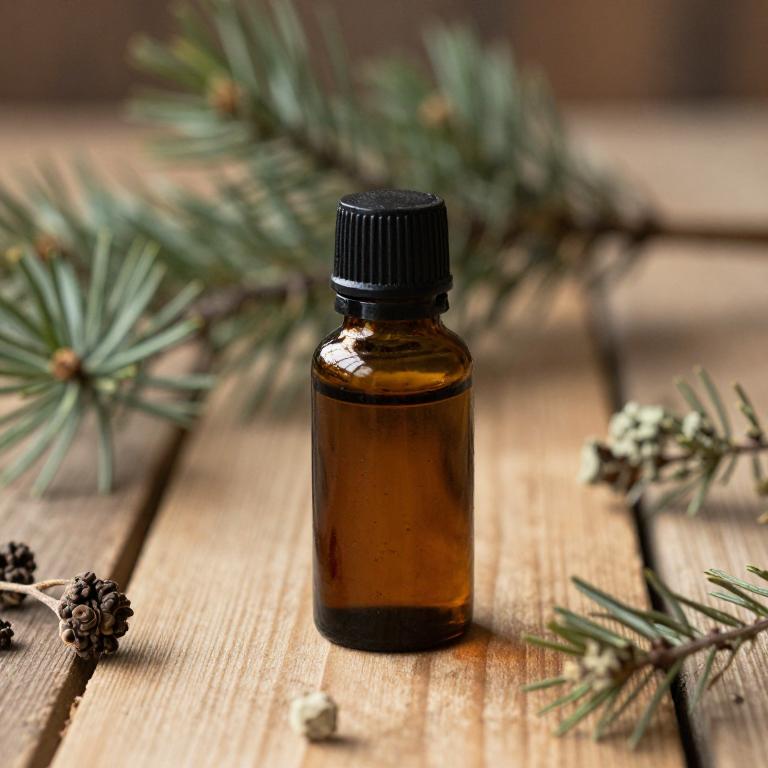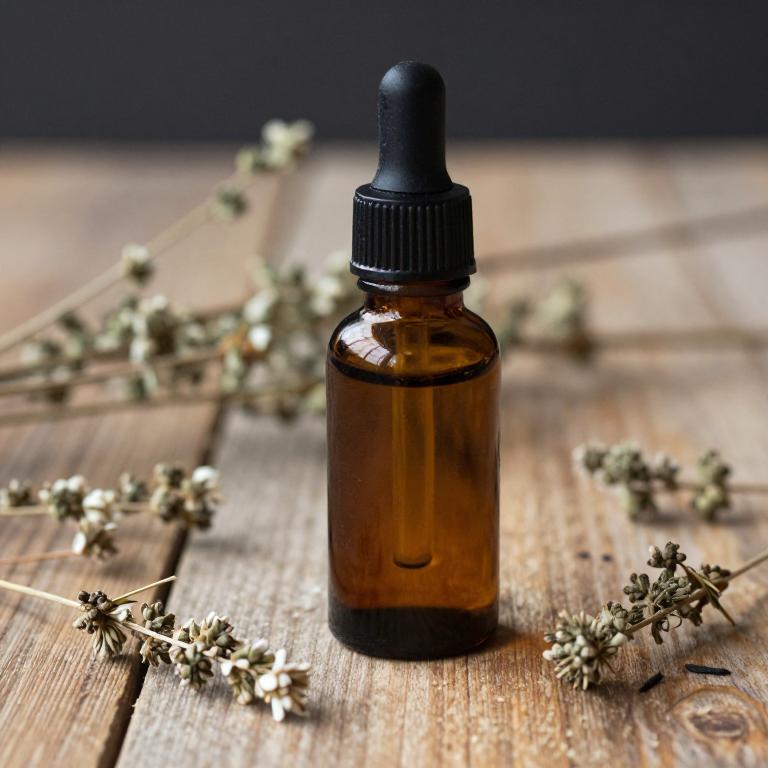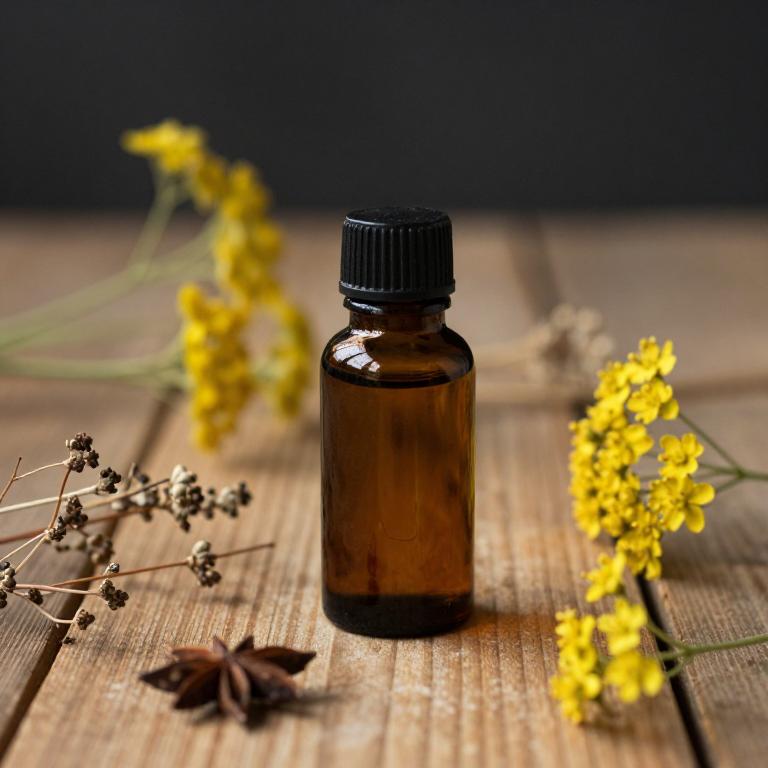10 Best Herbal Essential Oils For Hay Fever

Herbal essential oils such as eucalyptus, peppermint, and lavender are often used to alleviate symptoms of hay fever due to their natural antihistamine and anti-inflammatory properties.
These oils can be diffused into the air or applied topically to help reduce nasal congestion and sinus pressure, offering a natural alternative to conventional medications. Many people find relief from allergy symptoms by using aromatherapy with these essential oils, as they may help calm the nervous system and reduce the body's overall stress response. However, it is important to dilute essential oils properly and consult with a healthcare professional before use, especially for those with sensitive skin or existing health conditions.
While they can be a helpful complementary therapy, essential oils should not replace prescribed treatments for severe hay fever symptoms.
Table of Contents
- 1. English lavender (Lavandula angustifolia)
- 2. Stinging nettle (Urtica dioica)
- 3. German chamomile (Chamomilla recutita)
- 4. Thyme (Thymus vulgaris)
- 5. Salvia (Salvia officinalis)
- 6. Scots pine (Pinus sylvestris)
- 7. Catnip (Nepeta cataria)
- 8. Rosemary (Rosmarinus officinalis)
- 9. Eucalyptus (Eucalyptus globulus)
- 10. Anise (Pimpinella anisum)
1. English lavender (Lavandula angustifolia)

Lavandula angustifolia, commonly known as English lavender, is widely recognized for its calming properties and is often used in aromatherapy.
The essential oil derived from this plant contains compounds such as linalool and linalyl acetate, which have been studied for their potential anti-inflammatory and antihistamine effects. These properties make lavender essential oil a popular natural remedy for alleviating symptoms of hay fever, such as nasal congestion and itching. When used in diffusers or topical applications, it may help reduce the severity of allergic reactions by supporting the body's natural response to allergens.
However, it is important to consult with a healthcare professional before using essential oils, especially for individuals with known allergies or sensitivities.
2. Stinging nettle (Urtica dioica)

Urtica dioica, commonly known as stinging nettle, contains bioactive compounds that have been explored for their potential benefits in alleviating hay fever symptoms.
While the plant itself is not typically used to produce essential oils due to its low oil content, some formulations may use steam distillation of its leaves to extract a potent essential oil. This oil is believed to possess anti-inflammatory and antihistamine properties, which may help reduce allergic reactions associated with hay fever. However, it is important to note that scientific research on the efficacy of Urtica dioica essential oil for hay fever is limited, and more studies are needed to confirm its therapeutic benefits.
As with any herbal remedy, it should be used with caution and under the guidance of a qualified healthcare professional.
3. German chamomile (Chamomilla recutita)

Chamomilla recutita, commonly known as German chamomile, is a popular herbal source of essential oil that has been traditionally used to alleviate symptoms of hay fever.
The essential oil, extracted through steam distillation from the flower heads, contains bioactive compounds such as bisabolol and chamazulene, which exhibit anti-inflammatory and antihistaminic properties. These properties may help reduce nasal congestion, sneezing, and itching associated with allergic rhinitis. While scientific research on its efficacy for hay fever is limited, some studies suggest that inhalation of chamomile essential oil may provide symptomatic relief.
As a complementary therapy, chamomilla recutita essential oil can be used in aromatherapy or diluted in a carrier oil for topical application, though it should be used with caution and under professional guidance.
4. Thyme (Thymus vulgaris)

Thymus vulgaris, commonly known as thyme, is a herb that contains essential oils with potent antihistamine and anti-inflammatory properties, making it a promising natural remedy for alleviating hay fever symptoms.
The primary active compounds in thyme essential oil, such as thymol and carvacrol, help reduce nasal congestion, sneezing, and allergic reactions by modulating the immune response. When used in aromatherapy or diffused in the air, thyme essential oil can provide relief from seasonal allergies by cleansing the respiratory system and promoting clearer breathing. It is often blended with other calming essential oils like lavender or eucalyptus to enhance its therapeutic effects.
However, it is important to dilute thyme essential oil properly before use, as it can be irritating to the skin and should be avoided during pregnancy or by individuals with known allergies.
5. Salvia (Salvia officinalis)

Salvia officinalis, commonly known as sage, contains essential oils that have been traditionally used for their aromatic and therapeutic properties.
These essential oils, derived from the leaves of the plant, contain compounds such as thujone, camphor, and cineole, which may help alleviate symptoms of hay fever by reducing inflammation and supporting respiratory health. Some studies suggest that the antihistamine properties of sage may help ease allergic reactions, making it a potential natural remedy for seasonal allergies. When used in aromatherapy or diffused in the home, sage essential oil may help clear nasal passages and reduce congestion associated with hay fever.
However, it is important to use sage essential oil with caution, as it can be potent and may cause irritation if not diluted properly.
6. Scots pine (Pinus sylvestris)

Pinus sylvestris, commonly known as the Scots pine, produces an essential oil that has been traditionally used for its potential benefits in alleviating hay fever symptoms.
The oil contains compounds such as alpha-pinene and beta-pinene, which are known for their anti-inflammatory and antihistamine properties. These properties may help reduce nasal congestion, sneezing, and other allergic reactions associated with hay fever. When used aromatically or in diluted form, the essential oil can support respiratory health and provide relief from seasonal allergies.
However, it is important to consult with a qualified aromatherapist or healthcare provider before using it, especially for those with sensitive skin or existing medical conditions.
7. Catnip (Nepeta cataria)

Nepeta cataria, commonly known as catnip, contains essential oils that have been explored for their potential to alleviate symptoms of hay fever.
The primary active compounds in these oils, such as nepetalactone and limonene, are believed to have antihistaminic properties that may help reduce allergic reactions. Some studies suggest that inhaling catnip essential oil or using it in aromatherapy could provide relief from nasal congestion and sneezing associated with seasonal allergies. However, more research is needed to fully understand its efficacy and safety for regular use in managing hay fever.
Despite its traditional use, individuals with allergies should consult a healthcare professional before incorporating catnip essential oils into their treatment regimen.
8. Rosemary (Rosmarinus officinalis)

Rosmarinus officinalis, commonly known as rosemary, produces an essential oil that has been traditionally used for its aromatic and therapeutic properties.
The oil contains compounds such as cineole and camphor, which may help alleviate symptoms of hay fever by reducing nasal congestion and supporting respiratory health. Studies suggest that the anti-inflammatory and antioxidant properties of rosemary essential oil can help ease allergic reactions and improve breathing. When used in diffusers or as a topical application, it may offer a natural alternative to conventional treatments.
However, it is important to consult a healthcare professional before using essential oils, especially for individuals with asthma or sensitive skin.
9. Eucalyptus (Eucalyptus globulus)

Eucalyptus globulus, commonly known as mountain gum or blue gum, is a widely used herbal essential oil that has shown potential in alleviating symptoms of hay fever.
Its primary active components, such as cineole and limonene, possess anti-inflammatory and antihistamine properties that may help reduce nasal congestion and allergic reactions. When used in aromatherapy or diluted topical applications, eucalyptus globulus oil can support respiratory health and ease breathing difficulties associated with seasonal allergies. However, it is important to consult a healthcare professional before using this oil, especially for individuals with asthma or sensitive skin.
While it may offer natural relief, it should not replace conventional medical treatments for hay fever.
10. Anise (Pimpinella anisum)

Pimpinella anisum, commonly known as anise, is a herb that produces a valuable essential oil often used in natural remedies for hay fever.
This essential oil is derived from the tiny, star-shaped seeds of the plant through steam distillation, capturing its aromatic and therapeutic properties. It is believed to have antihistamine-like effects, which can help alleviate common hay fever symptoms such as sneezing, runny nose, and itchy eyes. The oil is typically used in diffusers, inhalers, or diluted topical applications to provide relief.
Due to its mild and pleasant aroma, anise essential oil is a popular choice for those seeking a natural and safe alternative to conventional hay fever treatments.